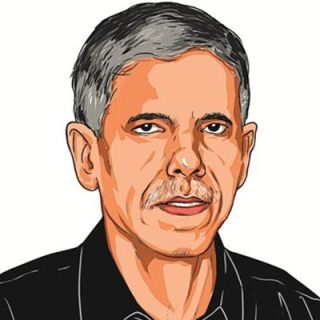Exam and Peace
Education is essentially war. It is devoid of joy and humour, creative play and aesthetic celebration.

Should the child be blamed for not having learnt the problems of algebra before coming into the world?
Rabindranath Tagore
As the board examinations approach, and the dialectic of “success” and “failure” begins to haunt young learners and their anxiety-ridden parents, we realise once again that the pattern of education we have normalised is inherently pathological. The creation of a violent/hierarchical/schooled consciousness seems to be its latent function.
Even though an empathic look at the educational ideals of Rabindranath Tagore, Sri Aurobindo and J Krishnamurti would suggest that there is no dearth of critical and creative thinking on liberating pedagogy, we dislike experimentation and new possibilities, and make a superficial distinction between “pragmatism” and “idealism”.
No wonder, we have become used to the routinisation of the practice of glorifying the “success stories” of the “toppers”, and, at the same time, inviting the psychiatrists on television channels to reflect on the “suicide narratives” of those who could not bear the stigma of “failure”. And meanwhile, everything would function as usual — the practice of “black education” would flourish in coaching centres, the publishers of “guide books” would make a lot of money, and school principals heavily burdened with the “ranking” of their schools would alert insecure parents of “problematic” children that in the age of inflated “cut off points” for admission in “branded” colleges, the future is bleak without 99 per cent in English, or 100 per cent in Physics.
Why is it so? There are three reasons I would emphasise. First, here is a system that closes the mind of the young learner, and abhors the desirability of making meaningful choices relating to academic quest and vocation. How are choices possible if schools — possibly, because of the age of techno-science and commerce that we live in — have already hierarchised knowledge traditions: Science or economics for the “intelligent” ones, and humanities for the “leftovers”?
Or does the child ever get the space to contemplate on her own inclinations and aptitudes at a time when peer pressure negates self-reflection and generates a crowd mentality, or when struggling parents — guided by the longing for upward social mobility — have already decided that she has to pass through the most travelled “Aakash/Fitjee/IIT” highway, and all other paths are “risky” and “impractical”, particularly in a society like ours traumatised by an acute sense of scarcity? Moreover, we have promoted a strange classification of academic disciplines. It is impossible for one to opt for, say, Physics, History and Music. It is taken for granted that if you have interest in literature, you cannot be equally inclined towards statistics. In other words, we decide the fate of our children so early. Not surprisingly, then, schooling prepares the ground for an alienated existence.










.png)




























No hay comentarios:
Publicar un comentario